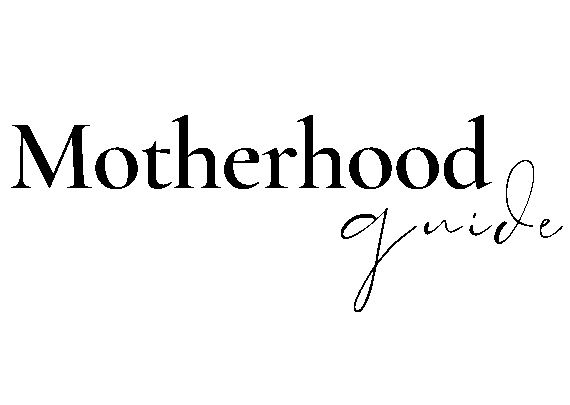How to Support Your Friend Through Mom Burnout

If you’re a mother of a teen, you’ve probably heard them saying that “it gets easier as they grow older.” But for many moms, it can feel as if the emotional load has grown heavier rather than lighter. For those who are raising teens, the exhaustion from constantly being ignored and tested, arguing, worrying, and waiting for them to come home late from their first parties or dates can go deeper than just physical tiredness, it can turn into mom burnout and affect your emotional well-being, your sense of self, and, at times, your ability to connect with the child you’ve spent years raising. We hear about the tantrums, the postpartum struggles, but the emotional weight that raising a teen can take?
When we’re raising babies, our hormones are biologically designed to help us through sleepless nights, to endure the stress, and to bond with our infants. But for moms raising teens? The hormonal support we once had has long faded. In those early years, nature gives us a steady dose of oxytocin to bond, and adrenaline to survive those long, sleepless nights. Fast forward to the teen years, and the sleepless nights are back, only now, it’s not because of them crying, but because them coming back from late, or trying to comfort them after a tough breakup.
Raising a teen at times feels like you’re swimming against the current. Until you get too tired. Mom burnout doesn’t only happen to moms of babies and toddlers. In fact, it’s an epidemic quietly spreading among mothers of teens, and unfortunately, it’s often overlooked. A recent survey found that 60% of moms with teens report feeling “emotionally drained”, with over 40% saying that they feel a lack of emotional connection with their children as they grow older. Further, 43% of mothers of teens report symptoms of anxiety and depression, compared to 28% of moms with younger children.
So how do you help yourself, your friend, partner, colleague or any other mother in your life who might be silently dealing with mom burnout from raising a teen?
Recognising Mom Burnout in Mothers of Teens
Mom burnout doesn’t look like what you might expect. There are no visible signs of exhaustion in the way there are when a mother is up all night nursing a baby. Instead, it’s emotional fatigue and mental exhaustion, and the signs can sometimes be more subtle, even invisible. But if you have doubts, here’s what to look for:
- Increased Emotional Distress: If your wife or friend is feeling hopeless, angry, or disconnected, it’s possible that burnout has set in. Teens often push boundaries, and trying to keep up with their fluctuating moods, academic pressures, and social lives can leave a mom feeling drained. These feelings are often masked by day-to-day functionality, so it’s easy to dismiss them.
- Feeling Overwhelmed: A mom of a teen may begin to feel like she’s losing control of her life. The teenage years are full of uncertainty, and if she feels like she’s constantly on high alert monitoring her teen’s social media activity, their academic performance, and their emotional state, it can leave her feeling like she’s on an endless emotional rollercoaster.
- Disconnection and Isolation: Burnout often leads to a sense of loneliness. If your wife, sister, or friend is retreating inward and pushing away social connections or even family, it may be a sign of emotional depletion. Teens often seek independence, which can leave moms feeling like they are no longer needed or that they’ve lost their bond with their child.
- Physical and Mental Exhaustion: Just like with physical burnout, this can manifest in physical symptoms like headaches, digestive issues, and poor sleep. But it’s the mental exhaustion that really gets to the core of burnout, feeling like you’ve lost your energy for everything, and getting through the day feels like a task on its own.
How to Help: Questions to Ask and Steps to Take
Helping with the mom burnout starts with listening. The biggest thing you can do is ask and listen. Avoid approaching her it in a way that makes her feel like it’s obvious that she’s not doing well. Don’t start with “You look very tired” or “I see you’re sad”. Better ask questions that give her the space to express what she’s really going through:
- “How are you feeling these days?”
- “What’s been the hardest part of parenting a teen?”
- “Is there something specific that’s been weighing on your mind?”
- “What can I do to support you right now?”
Understanding the Differences Between Depleted Mother Syndrome and Mom Burnout
It’s easy to get confused between Depleted Mother Syndrome and Mom Burnout because they share common traits: emotional exhaustion, lack of self-care, and a general sense of being overwhelmed. However, there are key differences.
- Depleted Mother Syndrome (DMS) refers to a state of emotional and physical depletion that is often chronic, typically happening after years of intense caregiving. It’s less about a specific moment of crisis and more about a gradual drowning into burnout due to a lack of support and personal care. For mothers of teens, DMS might manifest when the emotional investment into taking care of a family for years finally takes its highest, that they no longer feel connected to themselves.
- Mom Burnout, on the other hand, often refers to an sudden experience of exhaustion. It’s not necessarily linked to a long-term pattern but is the result of an overwhelming period of intense caregiving or high expectations. For moms of teens, this can happen when their kids’ challenges, like school stress or social pressures, become too much to handle.
When You Should Suggest Professional Help
If the signs of mom burnout persist and don’t seem to improve with basic self-care changes (getting more sleep, exercising or at least taking some longer walks; etc.), it may be time to encourage your friend, sister, or wife to seek professional help. Burnout, especially when experienced long-term, can develop into anxiety or depression, which requires professional care. Signs that professional help is needed include:
- Persistent feelings of sadness or hopelessness.
- A sudden or dramatic change in behavior, either becoming more withdrawn or acting out.
- Inability to find joy in things that once brought happiness.
- Physical symptoms like chronic headaches, severe insomnia, or an inability to function daily.
Remember, you don’t need to try to fix it all on your own; sometimes just getting help from someone trained to handle the emotional weight is the best solution.
How to Help Mom of a Teen Feel Better Practical Tips and Natural Remedies
- Encourage Self-Care (without the Guilt): Moms are the first to feel guilty when they take time for themselves, but self-care isn’t selfish, it’s essential. Encourage her to take breaks without feeling the need to “earn” them. A warm bath, a walk with no purpose, or even a night out with friends can make all the difference.
- Offer Hands-On Support: Whether it’s cooking dinner, helping with household chores, or simply driving kids to their after class activities, offering to take a load off can give her some breathing room.
- Promote Regular Movement and Rest: Physical exercise is one of the most effective ways to combat stress and improve mental health. Gently encourage her to join you for a walk or to try a pilates at home, anything that involves getting her body moving.
- Remind Her of Her Strengths: Moms of teens often feel invisible, like their efforts go unnoticed. Take time to remind her of all she’s done and how incredible she is. Reaffirm her value not just as a mother, but as an individual.
- Seek Mindfulness and Breathing Techniques: Encourage meditation, breathing, mindfulness practices, or journaling. These tools help ground the mind and release accumulated stress, which can dramatically improve emotional well-being.
Supporting a mother who’s navigating mom burnout requires more than just offering advice. It means being present, offering real, practical support, and validating her experiences. Recognise that the emotional weight of raising a teen can be just as overwhelming, if not more so, than the sleepless nights of infancy. Encourage her to take care of herself, seek professional help if needed, and remind her that mom burnout doesn’t define her, and she’s not weak – she’s tired. With the support, she can come out stronger and more connected to herself and her teen.











